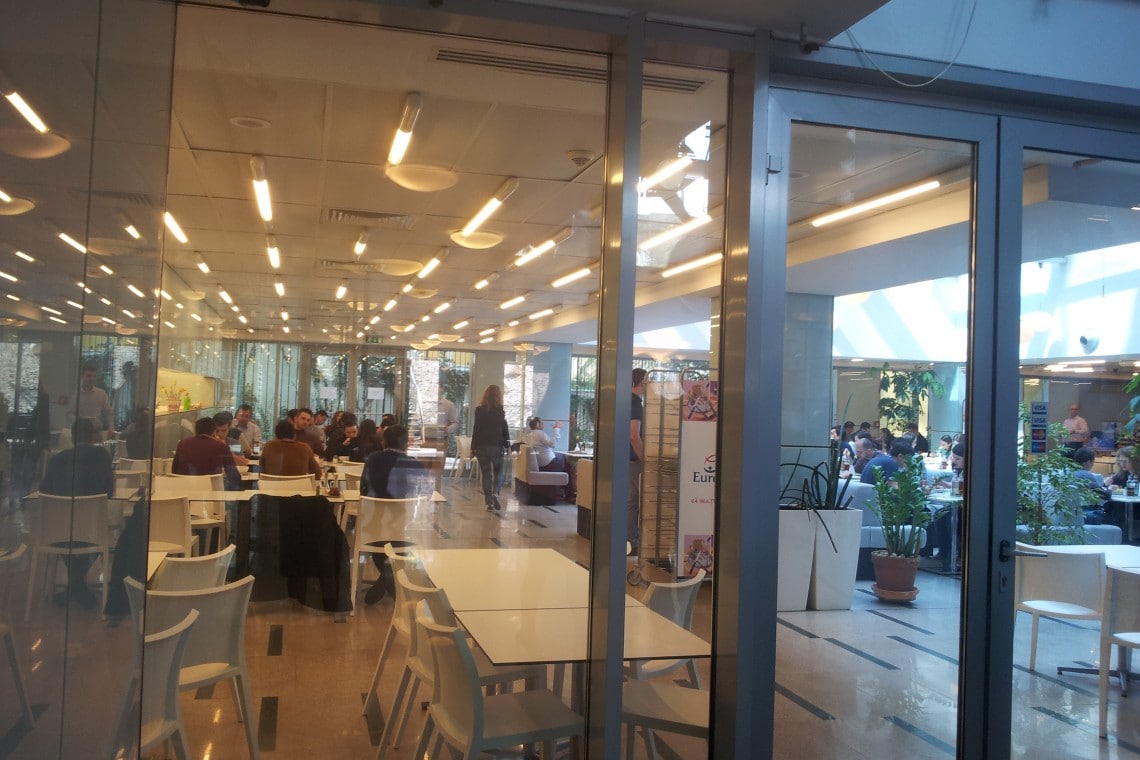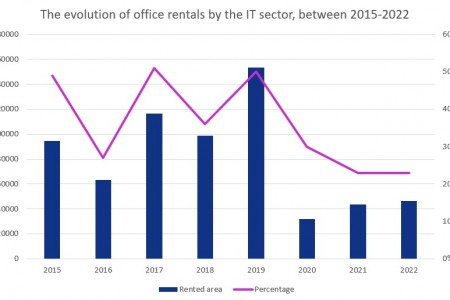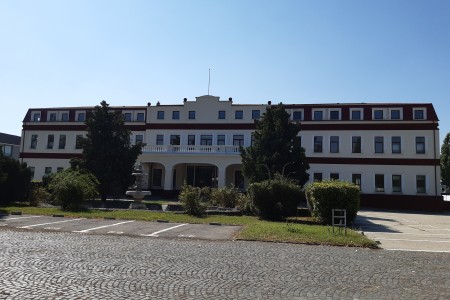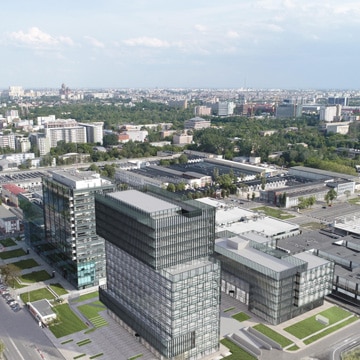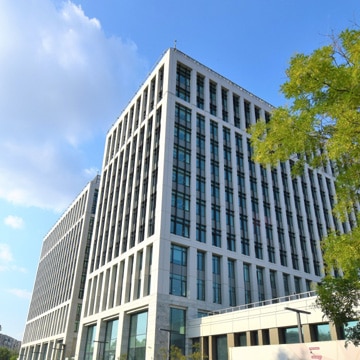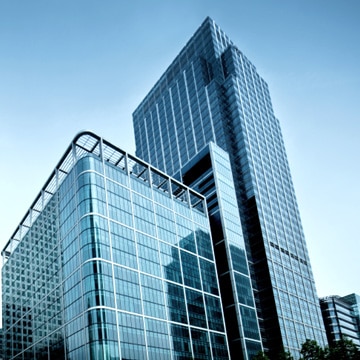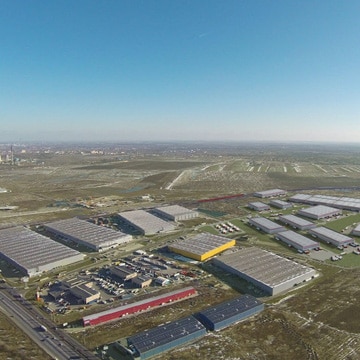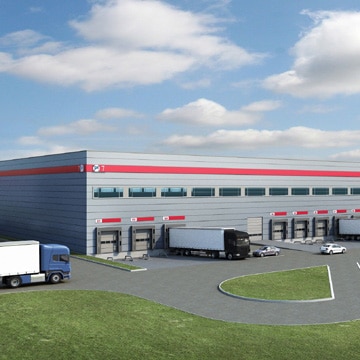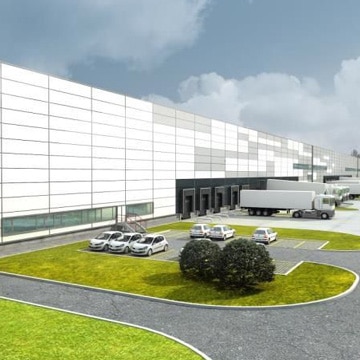In summer, companies that rent office space pay for air conditioning from 100 Euros to several thousand Euros per month, depending on the size of the space and the type of system used.
- Employees’ summer working conditions improve from year to year, as new technologies appear, implemented in ultramodern office buildings;
- The average office temperature provided by summer air conditioning is 24 degrees Celsius, plus/minus one degree.
In the summer months, the expenses with cold air insurance in the Romanian offices are between 0.7 euro/sqm/month and 1.2 euro/sqm/month, according to an analysis by ESOP Consulting, which takes into account the 750 offices and over 2,000 villas in the portfolio of promoted properties. The lowest costs per square meter of air conditioning in summer have green buildings and the highest old villas.
In 2015, cooling the offices for employees during the hot months costs between 120 euro/month, at a space of 100 sqm, located in a villa, up to 9,000 – 12,000 euro/month, at an office space of 10,000 sqm, located in a class A office building.
“Practically, at this moment, all office spaces have this facility, air conditioning in summer, unlike the 1990s, when air conditioning was a luxury for office tenants. But the simple presence of this facility is no longer satisfactory. Currently outstanding is the comfort offered by the air conditioning solution in an office space and its operating cost, “says Alexandru Petrescu, Managing Partner ESOP Consulting at CORFAC International.
Types of air conditioning systems used to cool the air in office spaces.
- In class A and B + buildings – centralized systems with 4 pipes
- In class B, C buildings and in some new / recently renovated villas – centralized systems with 2 pipes
- In villas and some class C buildings – split systems (with outdoor units on the walls)
The comfort offered by an air conditioning solution is an important aspect and evaluated primarily by user freedom. The first centralized air conditioning systems available in 1990-2000 provided hot or cold air only alternatively (warm air in the cold season, respectively cold air in the hot season), the so-called air conditioning system with 2 pipes (2 pipes system). Today, however, this system is considered less efficient, being found only in class B and C buildings. And this is because it limits the user in operation, more precisely, does not allow employees with different comfort temperatures (such as those from different countries, numerous among multinationals) to have both the option of cooling and heating at a specific time. Employee discomfort is higher during the transition seasons (spring and autumn) when the weather is more fluctuating. The transition from hot to cold or vice versa is done at a time chosen by the owner of the building.
The next generation of air conditioning systems, respectively those with 4 pipes (4 pipes system), present mainly in class A buildings (and sometimes B +), brings a significant added value to the chartered companies. This is because the “4 pipes” system gives users the freedom to use both hot and cold air in a building simultaneously. In such a building, employees in offices located on the north facade of the building can use the space heating function (in a passing season, for example). In contrast, staff in the vicinity of the south facade can use the feature warming up at the same time. With such increased freedom, subjective perceptions of comfort temperature are much easier to resolve.
The new class A office buildings have the best systems on the market
New technologies for cooling the air in office spaces provide both low energy consumption and increased comfort in the workspace. This increase also means that the circulation of cold air should be done as naturally as possible, not to affect the health of employees. In other words, no employee should be “hit in the head by the air conditioner, “but it should be dissipated as well as possible. The temperature should be adjusted as much as possible by each tenant.
- Sky Tower, the tallest office tower in Romania at the moment, ensures increased thermal comfort, bringing the Romanian office market as a first to use the “chilled beam” system. In Sky Tower, energy consumption is low, as evidenced by the certifications received from two specialized institutions, LEED and EVERYONE. The air conditioning system is designed at the maximum partitioning density of the space and not the minimum. Another advantage of the building is 100% fresh air supply, regardless of the number of partitions. Basically, in Sky Tower was taken into account the scenario of partitioning the space in the smallest possible way, creating rooms of approximately 15-17 sqm and equipping with intake and air extraction units for each.
- Hermes Business Campus, another green office complex, BREEAM certified, uses innovative technology in the HVAC field, namely the dissipation of cold air through the “active ceiling” system. This cold air dissipation system has three significant advantages: (1) it is evenly distributed in the office space, so it helps/confers high modularity of the area and reduces the costs of the fit-out. (2) it is more efficient in terms of electricity consumption, as it eliminates the need for devices/motors to push air from traditional air conditioning systems, and (3) perhaps the most critical aspect is the natural dissipation of cold air, whose natural tendency is to descend. In contrast, the warm air (positioned in the floor units) tends to rise.
- Green Court Bucharest, the 52,000 sq m office space for rent built by Skanska, will be LEED Gold certified. It will have an air conditioning system with fan coils and individual temperature control.
Thus, the management of office buildings will be done through an integrated platform SBO (StruxureWare Building Operation) that will allow access via the Internet to both owners, maintenance companies and tenants, who will be able to enter a custom page and change the comfort temperature in the office area themselves. They will see the temperature measured at that moment, or they can change the fan convectors fan speed.
Recommended summer temperatures at the office
In some leases, the average temperature during the summer is provided in the workspaces, offices. Still, often it is left to the attitude of the tenants.
The average office temperature is usually 24 degrees Celsius, but there are exceptions, given the company’s organizational culture. Thus, German companies have an average temperature of 19 degrees Celsius. In comparison, in companies with management in the Mediterranean countries, the average office temperature can be 26 degrees Celsius.
